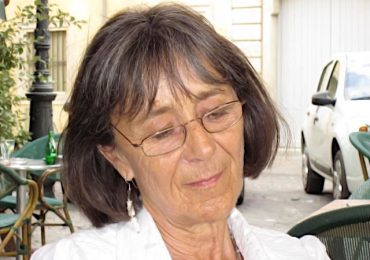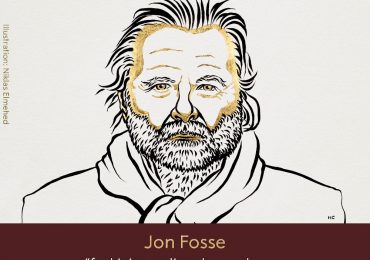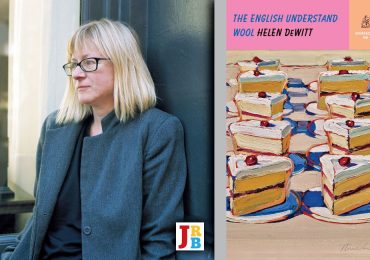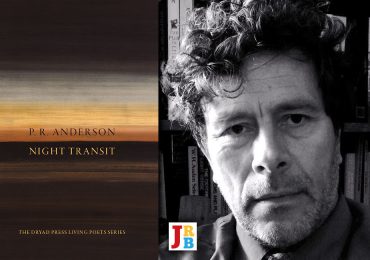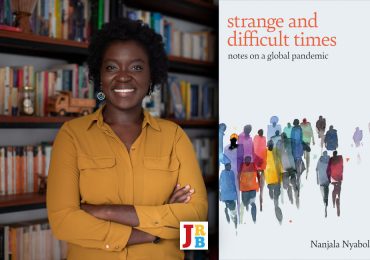Tanzanian novelist Abdulrazak Gurnah received the 2021 Nobel Prize in Literature, an announcement that came as a welcome surprise to many—including, it seems, himself.
Gurnah, who was born in the Sultanate of Zanzibar and is based in the UK, becomes the first Black African writer to be awarded the prize since Wole Soyinka in 1986, and is the first Tanzanian writer to win it.
Although considered an obscure choice, Gurnah is the internationally acclaimed author of ten novels, including the Booker Prize-shortlisted Paradise and, most recently, the Orwell prize-shortlisted Afterlives.
Before he was announced as this year’s winner, interviews with Gurnah were fairly few and far between. With a view to digging a little deeper into the motivations and interests of our freshly minted Nobel laureate, The JRB’s crack team of archivists (ahem, me) uncovered some leads that provide insight into the man and the writer.
Ten years ago, Gurnah was invited to share his thoughts about writing as part of an Open University course called Start Writing Fiction. You can read his ruminations below, and listen to the audio clips too.
The course is still available for free, online, through the Open University. So if you’ve’ always wanted to be taught writing by a Nobel laureate, now’s the time.
The other writers involved in the course were Alex Garland, Michèle Roberts, Tim Pears, Monique Roffey and Louis de Bernières.
Abdulrazak Gurnah on ‘starting out’—why he started writing fiction:
‘Why, I’m not sure. I guess why is one of those things that happens as you’re doing it. But how is more like a stumbling into it more than, you know, having some kind of ambition at a certain age and saying, I know what I’m going to do. Starting to write, rather than wanting to. And the starting for me happened with coming to England. I mean I used to write before, like at school, write the odd thing and so on, but it was only a kind of playing, doing it for your friends and that kind of thing. Not what we mean when we say “a writer”.
‘But it was after coming to England and kind of thinking about what it means to have left home, to have left people you know, to have come here, coming to grips with the things that were happening, not all of which were nice things. And it was during that process of thinking about things, understanding your position in relation to where you are, that I started to write things, just things. And then after a while the things, you think, well can I do something with these things? And then you gradually realise that you’ve got something that is developing or that is growing. And then get silly and say, I could write a book! That’s how it began, really.’
Listen (Gurnah at 3:40):
Abdulrazak Gurnah on writing autobiographical fiction:
‘I don’t in any case expect that you can evade this, you know, that you can escape writing about your experiences—or if you do then in itself that becomes a kind of project. You can say, well I’m going to write about everything but I’m going to keep myself out of it. Now what would be interesting then if you were a reader is to see where that suppressed self actually comes into the writing, however hard you suppress. But, you know, I don’t feel like that at all and I know a lot of writers don’t. There are a lot of writers who in fact quite happily write about themselves, Saul Bellow being one, Phillip Roth being another, who quite happily write about themselves. They make themselves the subject of their fiction. VS Naipaul is another one in recent times. But I still believe that in fact it is actually harder to keep the writer out of the writing than people imagine, at least the kind of fiction that I write and like to read.’
Listen:
Abdulrazak Gurnah on approaches to genre and the realist novel:
‘Well fiction quite often tells us things, gives us news, tells us about things. Sometimes you find people saying things as if this is an inferior function of fiction. But I don’t think so. I think when I read fiction, I look for many things, and sometimes you get more this than the other, but one certainly of the things I look for, one of the things that gives me pleasure in reading, is knowing things I didn’t know as a result of what I’m reading.
‘So there is, to some extent there is simply this, to say there are experiences which people have gone through and you should know about them, we should all know about them. But in the case of asylum and refugees, there is an even stronger reason for saying we must know about these things, because they’re to do with the way we live, they’re to do with how and where we live. And of course every day in the case of asylum and refugees, every day this is an issue in a kind of public discourse in the way that people speak and the way that the government functions.
‘If I can write about it in my fiction, as well as write about other things, one of the beauties of novels is that they’re not about one thing, but they’re complex things and they’re about different matters but that also different things happen in them, the writing itself, the gestures that it makes, what it suppresses and what it releases and so on. So all kinds of interesting things happen in novels, but one of the things that I’m interested in doing is always raising the question of, what has all this to do with how we live?’
Listen (Gurnah at 2:04):
Abdulrazak Gurnah on his use of the first person in his novel By the Sea, in which one of his first person narrators questions whether anyone can tell their own story reliably:
‘What he was meaning when speaking that way was, “how can I tell a story which is uninflected, that is truthful, that is honest, and also speak as an ‘I’, also speak as a first person?” So, can an “I” ever speak about anything where it concerns personal experience without putting the “I” first, without putting the “I” forward, defending the “I” ,protecting the “I”—can that happen? And I suspect probably no, but you know that doesn’t really matter, I mean when you’re writing using a first person narrator, you can just as well reveal the limitations, in terms of truth-telling anyway, the limitations of this voice and that too is part of the writing. You can say, look, this first person, this narrator, is telling us X, Y and Z, but we don’t really believe everything he tells us. It’s not that writing has to be truthful all the time, or indeed that it has to be truthful, because the very gaps it leaves in themselves have meaning. Even its untruths have meaning.’
Abdulrazak Gurnah on using the first person, and why he wrote By the Sea with alternating first person narrators:
‘The desire was, first of all, to make two positions, and to make two positions that are not mediated by another voice, so they just speak. And where the conflict will appear in the narrative. Now this they may pick up amongst themselves in the final part, where they actually talk, or the reader might pick up and say, “but that’s not what so-and-so said”. The intention here was simply to say that if given an opportunity this is how we deliver our stories, and not really to make finer judgements than that. To say, given opportunities we make stories, and indeed this is how we know ourselves. We don’t know ourselves by reflection, I don’t think, nor do other people know us by what they observe of us. Often we know ourselves and other people by the stories we construct. We construct ourselves in stories, I think.
‘The other thing that I was interested in using two voices is that, of course, they both come from the same place, but there’s a kind of ‘generation gap’ difference between them. There’s also another difference between them which is that one has been living in this place for the previous thirty or so years and the other one has been away. So I wanted to say, how do we see the same place differently depending on our experience? And you couldn’t really do this by having a third voice that says “this is what it was like for him, and this is what it was like for him”. So I thought if they speak for themselves, even if they’re not speaking directly to this subject, this actually allows different experiences and different understandings of experience to come out without forcing the issue, without saying: compare them please.’
Listen (Gurnah at 7:42):
Some final advice:
‘Be patient. I think that’s one advice, be patient both with the writing, that is write patiently, but also be patient about what you think you’ll be able to do with it or achieve with it. And I guess aside from that it’s like I said earlier, you trust whatever comes, what instinct you have for writing.’
Listen (Gurnah at 5:25):
Text transcribed from the Open University podcasts.

